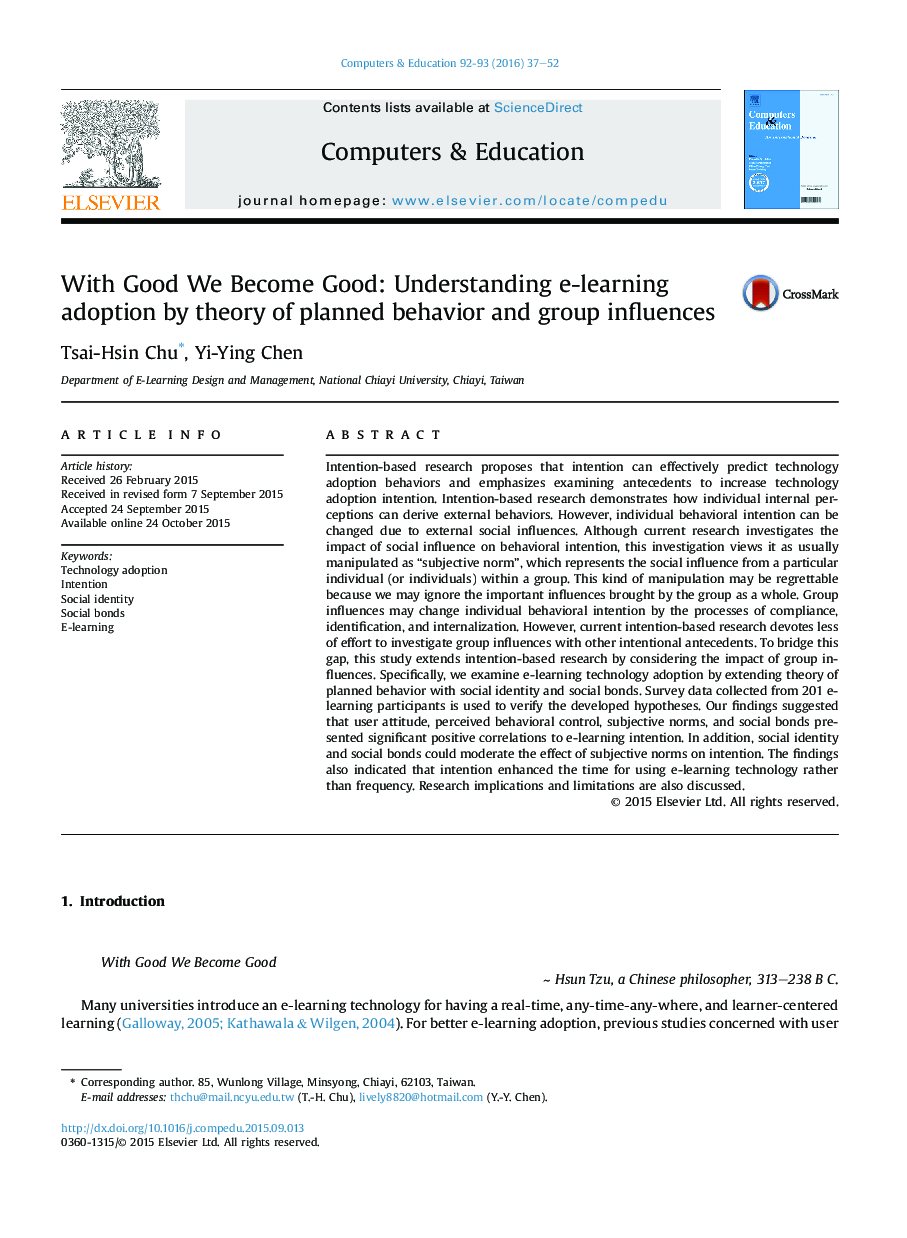| Article ID | Journal | Published Year | Pages | File Type |
|---|---|---|---|---|
| 348214 | Computers & Education | 2016 | 16 Pages |
•We extend TPB with social identity (SI) and social bonds (SB) for e-learning adoption.•We conduct a survey and apply PLS to examine the research framework and hypotheses.•Attitude, subjective norms, PBC, and SB can predict intention.•SI and SB moderate the effect of subjective norms on intention.•We highlight the importance of group influences on e-learning intention.
Intention-based research proposes that intention can effectively predict technology adoption behaviors and emphasizes examining antecedents to increase technology adoption intention. Intention-based research demonstrates how individual internal perceptions can derive external behaviors. However, individual behavioral intention can be changed due to external social influences. Although current research investigates the impact of social influence on behavioral intention, this investigation views it as usually manipulated as “subjective norm”, which represents the social influence from a particular individual (or individuals) within a group. This kind of manipulation may be regrettable because we may ignore the important influences brought by the group as a whole. Group influences may change individual behavioral intention by the processes of compliance, identification, and internalization. However, current intention-based research devotes less of effort to investigate group influences with other intentional antecedents. To bridge this gap, this study extends intention-based research by considering the impact of group influences. Specifically, we examine e-learning technology adoption by extending theory of planned behavior with social identity and social bonds. Survey data collected from 201 e-learning participants is used to verify the developed hypotheses. Our findings suggested that user attitude, perceived behavioral control, subjective norms, and social bonds presented significant positive correlations to e-learning intention. In addition, social identity and social bonds could moderate the effect of subjective norms on intention. The findings also indicated that intention enhanced the time for using e-learning technology rather than frequency. Research implications and limitations are also discussed.
